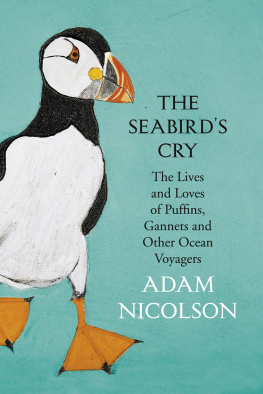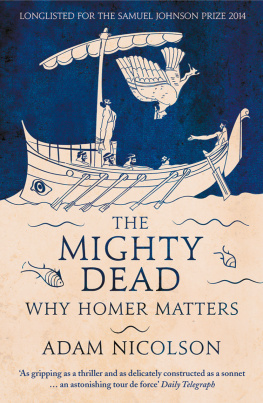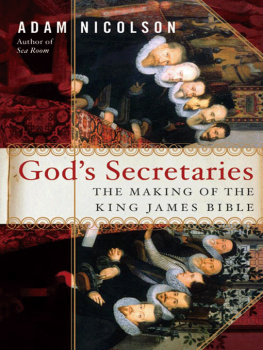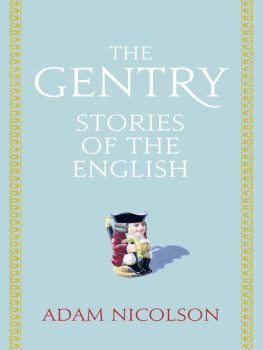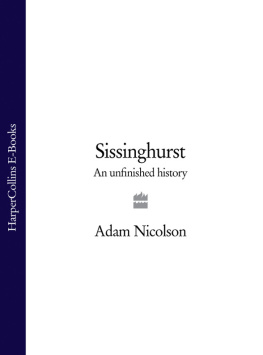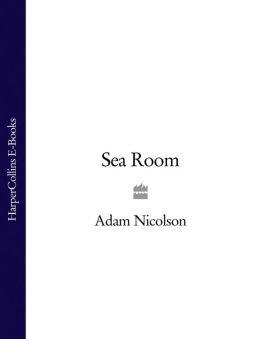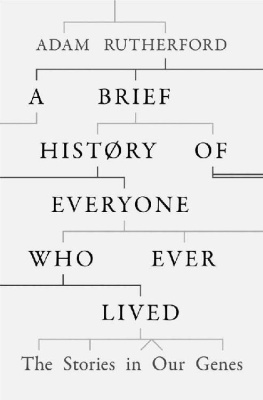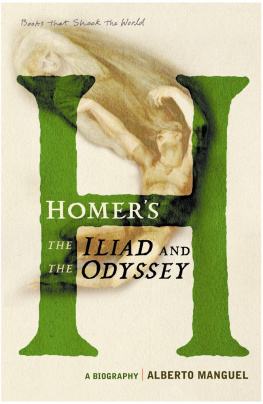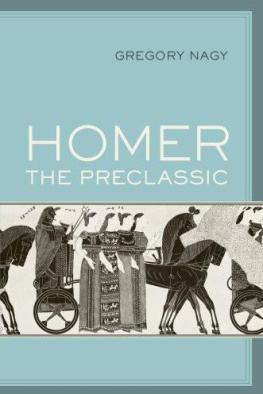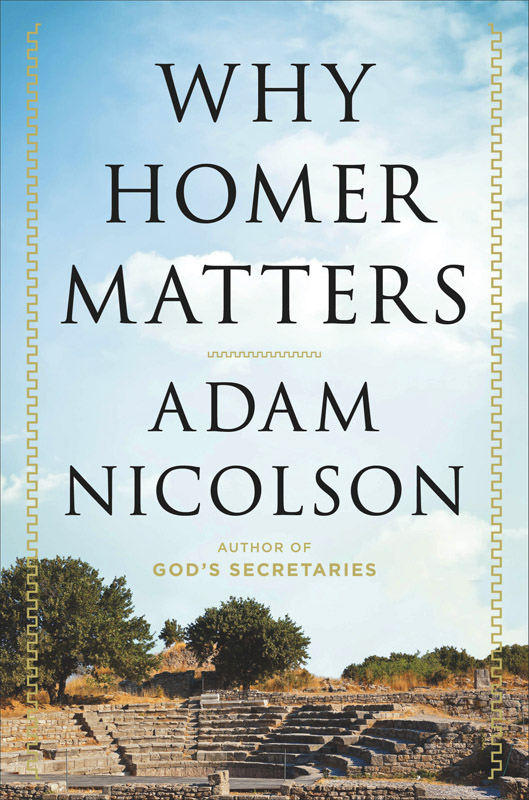Contents
Guide
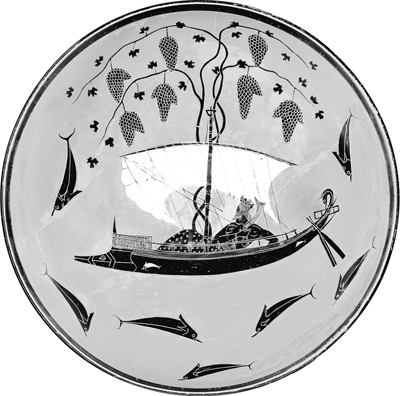

W HY H OMER M ATTERS. Copyright 2014 by Adam Nicolson. All rights reserved. For information, address Henry Holt and Co., 175 Fifth Avenue, New York, N.Y. 10010.
www.henryholt.com
Jacket design by Lucy Kim
Jacket images: Ancient ruins Zoonar GmbH/Alamy; sky Jelena Veskovic/Getty Images
eBooks may be purchased for business or promotional use. For information on bulk purchases, please contact Macmillan Corporate and Premium Sales Department by writing to MacmillanSpecialMarkets@macmillan.com.
The Library of Congress has cataloged the print edition as follows:
ISBN: 978-1-62779-179-3
e-ISBN 978-1-62779-180-9
First US Edition: November 2014
For
Sarah Raven
Molly Nicolson
Rosie Nicolson
Ben Nicolson
William Nicolson
Thomas Nicolson
CONTENTS
COLOR PLATES
TEXT ILLUSTRATIONS
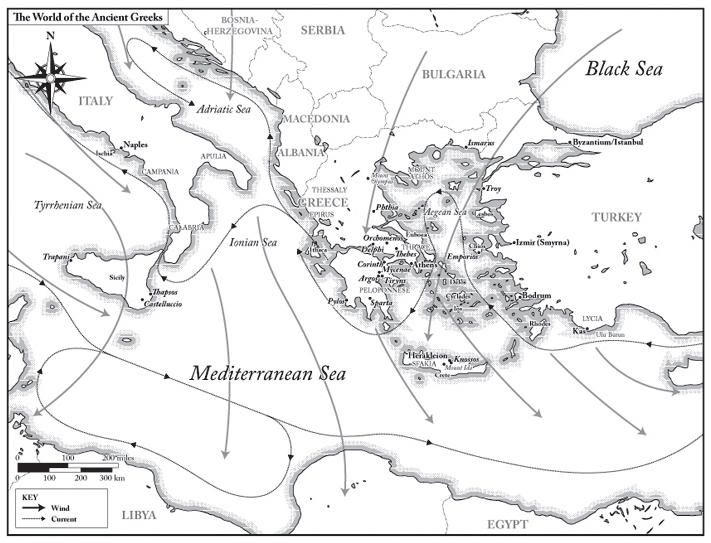
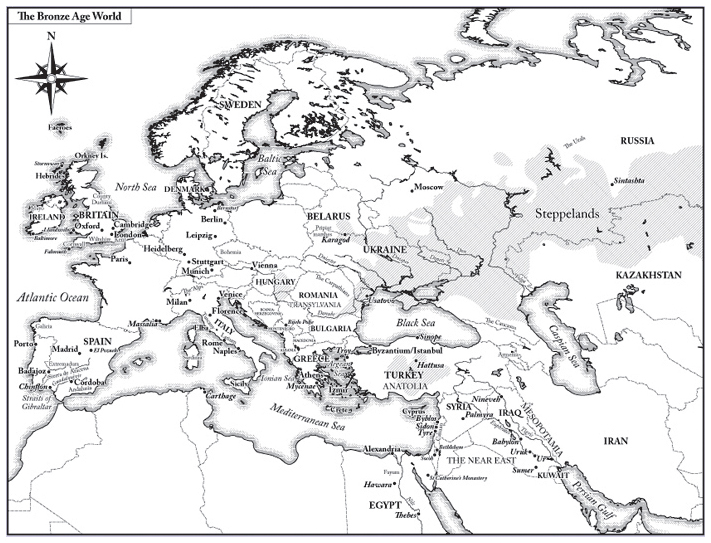
There is a pair of linked questions at the heart of this book: Where does Homer come from? And why does Homer matter? These ancient poems can be daunting and difficult, but I have no doubt that their account of war and suffering can still speak to us of the role of destiny in life, of cruelty, humanity, its frailty and the pains of existence. That they do is a mystery. Why is it that something conceived in the eastern Mediterranean Bronze Age, maybe four thousand years ago, as foreign as the Dayak, as distant as Vanuatu, can still exert its grip on us? How can we be so intimate with something so far away?
Perhaps it is a mistake to give the answer before the questions are properly asked, but this is complicated country, and an idea of the destination is worth having. Besides, it is a Homeric technique to tell the story before it begins. And so, if you ask why and how the Homeric poems emerged when they did, and why and how Homer can mean so much now, the answer to both questions is the same: because Homer tells us how we became who we are.
That is not the usual modern answer. The current orthodoxy is that the Iliad and the Odyssey are both products of the eighth century BC , or thereabouts, early Iron Age Greece, a time that has been called the Greek Renaissance. In the preceding half millennium, Greek civilization had largely sunk into isolated pockets of poverty. Many of the islands in the Aegean were deserted. One or two had remained rich and kept up links with the Near East, but the great palaces of an earlier Greece had fallen into ruin. But for reasons that have yet to be explained, the eighth century saw a widespread revival. The population of Greece and the islands began to grow. The tempo of life quickened. The art of making bronze, dependent on imported tin, was revived for the first time in four centuries. Colonies, trade, improved ships, gymnasiums, coinage, temples, cities, pan-Hellenic competitions at Olympia (the first, traditionally, in 776 BC ), the art of writing, of depicting the human figure on pottery and in the round, the first written law codes, the dating of history, the first tentative moves toward the formation of city-statesevery one of these aspects of a renewed civilization quite suddenly appeared all over the eighth-century Aegean. Homer, in this view, was the product of a new, dynamic, politically inventive and culturally burgeoning moment in Greek history. Homer was the poet of a boom.
I see it differently: my Homer is a thousand years older. His power and poetry derive not from the situation of a few emergent states in the eighth-century Aegean, but from a far bigger and more fundamental historic moment, in the centuries around 2000 BC , when early Greek civilization crystallized from the fusion of two very different worlds: the semi-nomadic, hero-based culture of the Eurasian steppes to the north and west of the Black Sea, and the sophisticated, authoritarian and literate cities and palaces of the eastern Mediterranean. Greeknessand eventually Europeannessemerged from the meeting and melding of those worlds. Homer is the trace of that encounterin war, despair and eventual reconciliation at Troy in the Iliad , in flexibility and mutual absorption in the Odyssey . Homers urgency comes from the pain associated with that clash of worlds and his immediacy from the eternal principles at stake: what matters more, the individual or the community, the city or the hero? What is life, something of everlasting value or a transient and hopeless irrelevance?
The idea I have pursued is that the Homeric poems are legends shaped around the arrival of a peoplethe people who through this very process would grow to be the Greeksin what became their Mediterranean homeland. The poems are the myths of the origin of Greek consciousness, not as a perfect but as a complex, uneasy thing. As a civilization, what emerged in Greece was distinct from both the northern steppelands of the Bronze Age and the autocratic bureaucracies of the Near East, and fused qualities of both. Homer is a foundation myth, not of man nor of the natural world, but of the way of thinking by which the Greeks defined themselves, the frame of mind which made them who they were, one which, in many ways, we have inherited. The troubled world described by Homer remains strangely familiar.
This is also a book about epic poetry, and the value of epic in our lives. Epic is not an act of memory, not merely the account of what people are able to recall, since human memory only lasts three generations: we know something of our grandparents but almost nothing, emotionally, viscerally, of what happened in the generations before them. Nor is it a kind of history, an objective laying out of what occurred in a past to which we have little or no access. Epic, which was invented after memory and before history, occupies a third space in the human desire to connect the present to the past: it is the attempt to extend the qualities of memory over the reach of time embraced by history. Epics purpose is to make the distant past as immediate to us as our own lives, to make the great stories of long ago beautiful and painful now.
A wonderful painting of epic itself survives from Mycenaean Greece. In the summer of 1939, the University of Cincinnati archaeologist Carl Blegen, along with a Greek team, began excavating the Mycenaean palace of Pylos, in the southwestern Peloponnese. In the great columned room at the center of the palace, Blegen discovered, in pieces on the floor, where it had been dumped by the fire that brought the Mycenaean world to an end around 1200 BC , a revelatory fresco.
Against a ragged background, perhaps a rough, mountainous horizon, a poetcall him Homersits on a luminous, polychromed rock, a nightclub idea of a rock, dressed in a long striped robe with the sleeves of his overshirt coming almost halfway down his bare brown arms. His hair is braided, tendrils of it running down his neck and onto his back. He looks washed. Everything about him is alert, his eye bright and open, his body poised and taut, upright, ready. In his arms he holds a large five-stringed lyre, the fingers of his right hand plucking at those strings, which bend to his touch.


